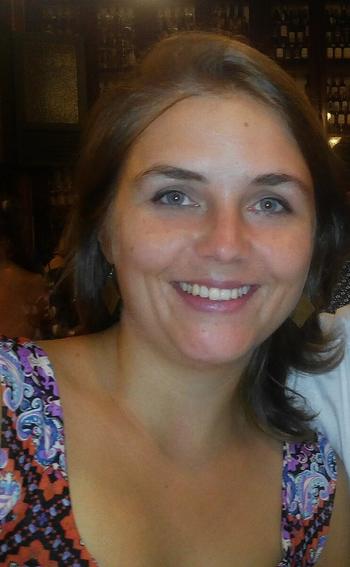Julia Haß

International Research Training Group "Between Spaces"
Movements, Actors and Representations of Globalisation
Associated PhD student
Project: "Women’s Amateur Soccer in Rio de Janeiro – Negotiating Gender, Social Class and Urban Space"
14195 Berlin
Studies
Since 08.2016 Scholarship from the International Graduate School ‘Between Spaces’ in Berlin
PhD in Social and Cultural Anthropology at Free University Berlin, Germany
10.2010-11.2013 Master Studies in Interdisciplinary Latin American Studies at Free University Berlin, with emphasize on social and cultural anthropology, Germany
02.2008-01.2009 Studies at ‘Universidad Veracruzana’ in Xalapa, Mexico
10.2006-03.2010 Bachelor Studies in Cultural Studies at University ‚Europa-Universität Viadrina‘ in Frankfurt (Oder), Germany
Professional
08.2015-07.2016 Research Assistant of the research project ‘Soccer, transculturalism and gender: amateur football leagues of Latin-American migrants’(with Stephanie Schütze) at the Free University Berlin, Germany
05.2014-10.2014 Internship at the Centre for International Migration (CIM) at the ‘Gesellschaft für Internationale Zusammenarbeit’ (GIZ) in Eschborn, Germany
08.2011-03.2014 Student Assistant in the area of Social and Cultural Anthropology at the Institute of Latin American Studies, Free University Berlin, Germany
02.2009-03.2009 Internship at the Goethe Centre Santa Cruz de la Sierra, Bolivia
Scholarships
11.2014-12.2014 Scholarship in the research programm „Sport in Foreign Policy“ from the Institut für Auslandbeziehungen (ifa) in Brussels, Belgium
07.2012-08.2012 PROMOS Scholarship for a research stay (in context of the Master’s thesis) in Rio de Janeiro, Brazil
“Women’s Amateur Soccer in Rio de Janeiro – Negotiating Gender, Social Class and Urban Space”
Supervisor: Prof. Dr. Susanne Klengel (FU Berlin)
In my PhD project I investigate the significance of gender, social class and urban space in women’s amateur soccer in Rio de Janeiro. Moreover, I analyze the social negotiations processes between female players and other groups and persons happening on and outside soccer fields.
Football has a central role in Brazilian society: In the political and national sense – in the 1930s and 1940s soccer was used for constructing a new Brazilian nation. From an economical point of view, Brazil became one of the most important countries worldwide ‘exporting’ soccer players at the end of XXs century. Last but not least, soccer’s cultural and everyday life’ importance should not be underestimated.
Since its introduction at the end of XIXs century, women were disadvantaged and excluded from Brazilian soccer. Soccer was claimed as male territory; the development of structures of women’s amateur or even professional soccer was impeded by discriminating practices, discourses and laws. However, the social acceptance and the amount of women in amateur soccer in Rio de Janeiro have increased in last three decades. The question rises whether successful female players advance in the metropolis’ amateur soccer’s spaces and if social conflicts arise. Here it is particularly interesting to inquire how successful women of different social classes gain access to amateur soccer and to sports in general. This ensures that Brazil has been the 10th strongest economy worldwide but is one of the Latin American countries with most social inequalities. Furthermore racism plays an important role. Therefore, social realities of persons from different social class, ethnicity and gender differ a lot from each other. In which way do these aspects affect women’s amateur football?
Julia Haß (2017): Book review: „Schwell, Alexandra; Buchowski, Michał; Kowalska, Małgorzata; Szogs, Nina (Hrsg.): New Ethnographies of Football in Europe. People, Passions, Politics. London 2015“. In: H-Soz-Kult, January 2017.
Haß, Julia (2016): „Dinâmicas, estruturas e obstáculos no futebol amador feminino no Rio de Janeiro”. In: Esporte e Sociedade. 11(28), <http://www.uff.br/esportesociedade/pdf/es2801.pdf>.
Haß, Julia (2016): “The taxpayer’s burden and dribbling prejudices” In: Culture Report EUNIC Yearbook 2015/2016, EUNIC, Institut für Auslandsbeziehungen (ifa).
Haß, Julia (2016): „Frauenamateurfußball in Rio de Janeiro – Umkämpfter Sport- und Stadtraum“. In: Peripherie: Politik, Ökonomie, Kultur. 36(1), 57-73.




